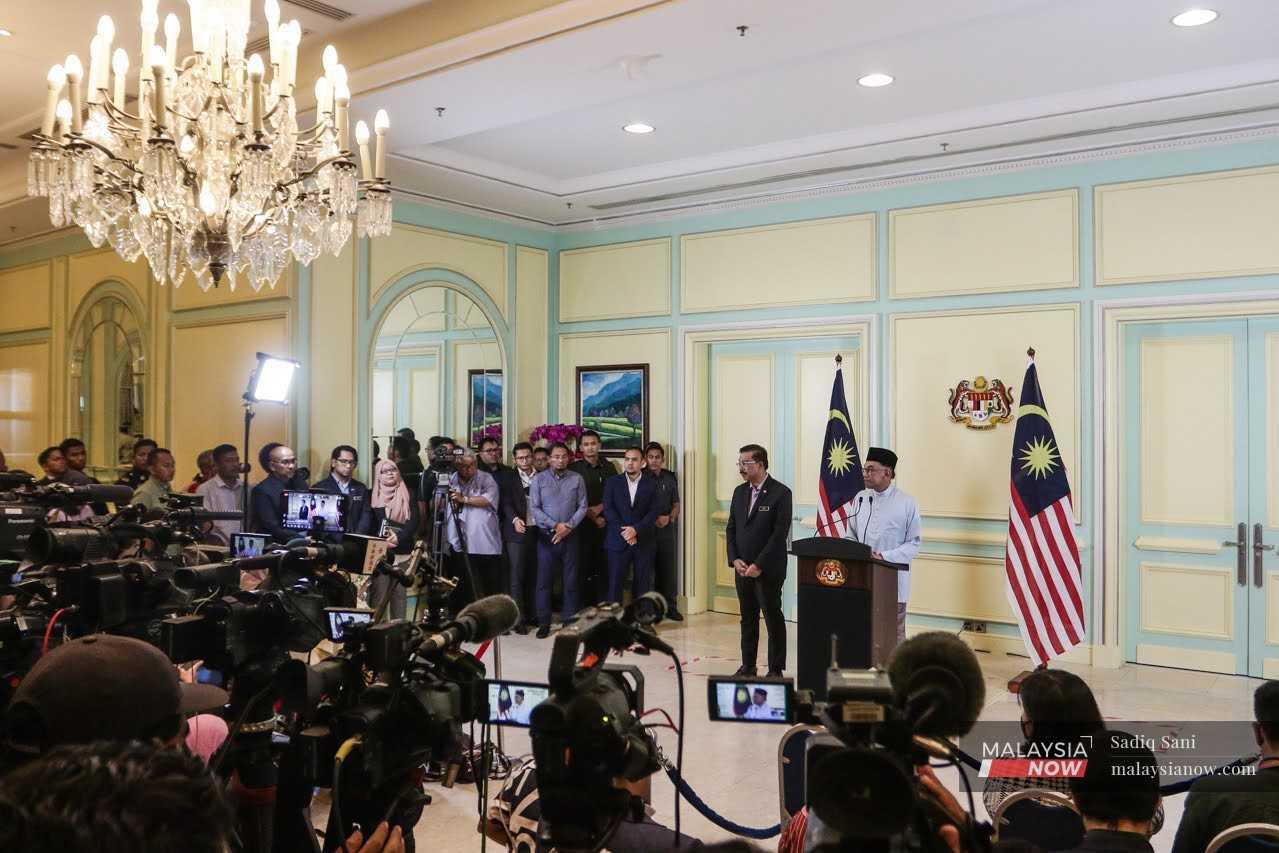After 100 days, Malay support for Anwar's govt still under debate
Factors include Pakatan Harapan's move to work with Barisan Nasional, and the methodology of studies on the matter.
Just In
The question of Malay support for the administration of Prime Minister Anwar Ibrahim remains a topic of debate, 100 days after the coalition government was sworn in, ending the impasse that followed the results of the 15th general election (GE15).
The issue resurfaced after Anwar rejected the findings of a study by analyst Bridget Welsh, putting Malay support for his Pakatan Harapan (PH) coalition at 11%.
Anwar, the PKR president, said research by his party had placed Malay support for PH at 31%.
Most recently, another study by research firm 02 in collaboration with several media organisations found that 71% of Malay respondents were unsatisfied with the performance of the coalition government in meeting the vows in its election manifestos.
Political analyst Mansor Mohd Noor said the government should look to the process of its formation and its policies to understand the unhappiness of the Malay community.
"Anwar's rallying call since 1998 has been transparency, accountability and integrity," Mansor, an ethnic relations expert, told MalaysiaNow.
"That battle cry saw the downfall of Barisan Nasional (BN). But the formation of the national unity government is not to the liking of the Malays, who rejected Umno at GE15."
He added that the practice of nepotism and political appointees to public agencies had not been well received either.
Long-time foes PH and BN joined hands to form the government in the wake of GE15, the inconclusive results of which had led to a hung parliament.
Anwar later courted controversy by appointing his daughter, Nurul Izzah Anwar, as his senior economic and financial adviser. Nurul, who lost her Permatang Pauh seat at GE15, was later transferred to the finance ministry, which is also under Anwar.
Mansor also zeroed in on PH's multicultural narrative in nation-building which he said did not have the support of the Malays.
"The new slogan of Malaysia Madani, to the Malays, is a watered-down concept devoid of its roots to the indigenous socio-political culture and other heritages," he said.
"Malaysia Madani as a growth concept failed to mobilise these diverse values in strengthening the nationalistic bond of a shared 'Bangsa Malaysia'."
Methodology
A total of 35,077 respondents took part in the 02 study, carried out together with Sinar Harian, Awani, The Star, Sin Chew, and Malaysia Nanban.
The study found that 76% of the Chinese and Indian respondents felt that the country was heading in the right direction, along with 59% of the Bumiputera in Sabah, 60% of the Bumiputera in Sarawak, and 58% of the other communities.
Sixty percent of Malays in the peninsula, meanwhile, said otherwise.
Hisommudin Bakar of think tank Ilham Centre however questioned the methodology used in the study.
"The study sample cannot be generalised to represent the voice of Malaysians as it does not match the demographic sampling of the population," he said.
"I fear that the findings do not provide a complete picture and may only represent the voice of the readers and viewers of the five media organisations where the questions were presented."
Hisommudin said any study on the sentiments of the Malays towards the government or prime minister should follow the distribution of localities and states.
He said PH and BN still had strong influence in the central and southern parts of the peninsula.
"Study findings should logically be balanced or mixed between the support for the two political blocs," he said.
"If even states under BN and PH do not support the government's agenda, that, to me, would be very worrying."
Mansor meanwhile said that the government should focus on inclusive development for the welfare of the people as a whole, given the uncertain economic predictions for the year ahead.
"The government will be accepted by the people if it doesn't assume that it already knows what the people want," he said.
"It needs to engage with the people beyond ethnic and political party interests, for the sake of the country and the nation."
Subscribe to our newsletter
To be updated with all the latest news and analyses daily.
Most Read
No articles found.
